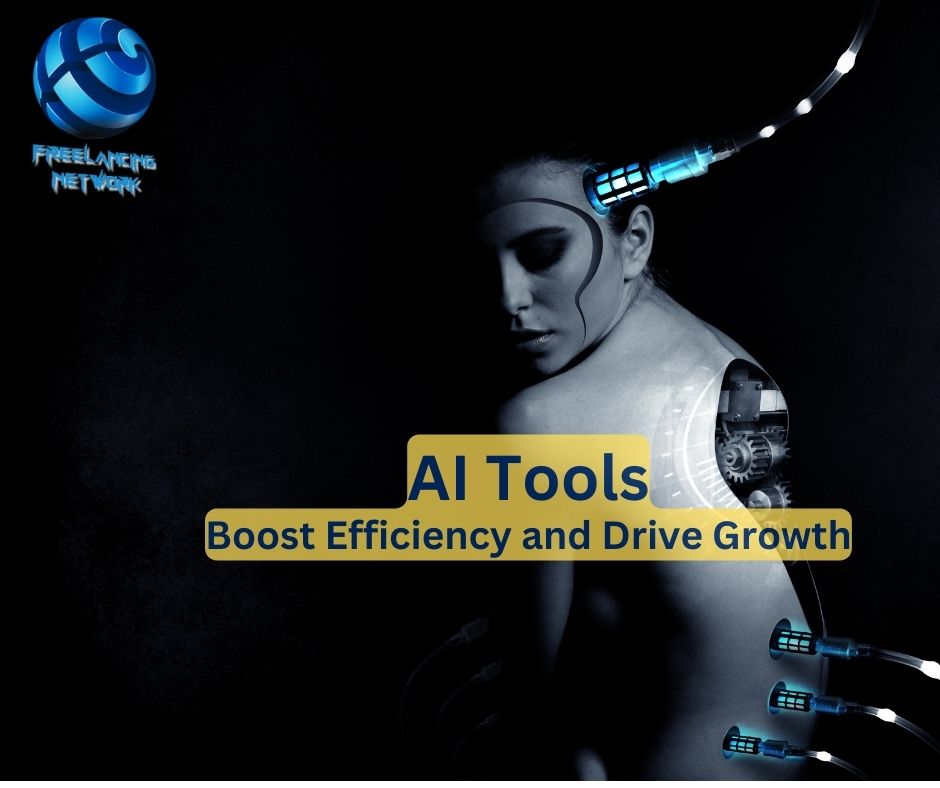AI tools have revolutionized the way businesses operate by providing automation, insights, and enhanced decision-making capabilities. AI tools are now being used in various industries, including healthcare, finance, marketing, and customer service. In this article, we’ll discuss the benefits of AI tools and some of the most popular AI tools available in the market.
Benefits of AI Tools
- Automation: AI tools can automate mundane and repetitive tasks, allowing employees to focus on more complex and strategic tasks. This improves productivity and efficiency in the workplace.
- Enhanced Decision-Making: AI tools can provide businesses with valuable insights that help in making informed decisions. This includes predictive analytics, sentiment analysis, and customer behaviour analysis.
- Personalization: AI tools can analyze customer data to create personalized experiences. This can be done through chatbots, recommendation engines, and targeted advertising.
- Cost-Effective: AI tools can help businesses save money by reducing the need for human labor, automating processes, and improving efficiency.
Popular AI Tools
- Jasper: Jasper is an AI-powered chatbot builder that helps businesses automate customer service, sales, and marketing tasks. Jasper uses natural language processing and machine learning to understand customer queries and provide accurate and helpful information. Jarvis is an AI-powered content creation tool that helps businesses create high-quality content quickly and easily. Jarvis uses natural language generation to produce content that is engaging and effective.
- Hootsuite Insights: Hootsuite Insights is an AI-powered social media analytics tool that helps businesses monitor and analyze social media activity. It provides valuable insights into customer behaviour and sentiment, which can be used to inform social media strategies.
- Salesforce Einstein: Salesforce Einstein is an AI-powered customer relationship management (CRM) tool that helps businesses improve customer engagement and drive sales. It provides predictive analytics, lead scoring, and personalized recommendations.
What is an AI tool?
An AI tool is a software application that uses artificial intelligence technologies to automate tasks or provide insights. These tools can range from chatbots to natural language processing systems to machine learning algorithms.
How do AI tools work?
AI tools work by processing data and using algorithms to identify patterns and make predictions or decisions based on that data. Some AI tools are designed to learn and improve over time based on feedback and new data.
What are the benefits of using AI tools?
Some benefits of using AI tools include increased efficiency and accuracy, improved decision-making, reduced costs, and the ability to process large amounts of data quickly.
What are some popular AI tools available?
Some popular AI tools include IBM Watson, TensorFlow, Amazon Alexa, Microsoft Azure Machine Learning Studio, and Google Cloud AI Platform.
How can AI tools be applied in different industries?
AI tools can be applied in a variety of industries, such as healthcare (diagnosing diseases), finance (detecting fraud), and marketing (predicting consumer behaviour).
What is the difference between machine learning and deep learning tools?
Machine learning tools are designed to recognize patterns in data and make predictions based on those patterns, while deep learning tools are more complex and can automatically learn to recognize features in data without being explicitly programmed to do so.
How are AI tools changing the job market?
AI tools are automating many routine tasks, which is changing the job market by reducing demand for certain roles while creating new opportunities for those with skills in AI development and implementation.
What are some concerns about the use of AI tools?
Some concerns about the use of AI tools include bias in decision-making, job displacement, and the potential for misuse by bad actors.
How can businesses choose the right AI tool for their needs?
Businesses should consider factors such as the size of their data set, their budget, and the specific goals they want to achieve when choosing an AI tool. It’s also important to consider the level of technical expertise required to implement and maintain the tool.
What are the future of AI tools and their impact on society?
The future of AI tools is likely to see continued growth and innovation, with increased use in a wide range of industries. There is also an ongoing debate about the ethical implications of AI and its potential impact on employment and society as a whole.
In conclusion, AI tools offer numerous benefits to businesses, including automation, enhanced decision-making, personalization, and cost-effectiveness. There are various AI tools available in the market, each designed to address specific business needs. By adopting AI tools, businesses can improve efficiency, productivity, and customer experiences.

